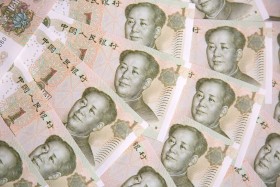The Chinese yuan is strengthening against several major currencies on Thursday as the federal government announced it would be deregulating a whole host of industries to encourage foreign investment. This is part of Beijingâs efforts to open its market to the rest of the world and curb the growing number of companies fleeing the worldâs second-largest economy amid the trade war.
Speaking at the World Economic Forum in China, otherwise known as the Summer Davos, Premier Li Keqiang confirmed that the central government would be opening its economy faster as to reverse the trend of slowing foreign investment.
According to the premier, Beijing will deregulate finance, Internet, telecommunications, and transportation. As part of these efforts, foreign investors will face fewer restrictions, foreign ownership limits in life insurance and securities will be removed next year, and majority ownership will be allowed as of 2021.
Under current regulations, airlines, phone carriers, Internet providers, and other telecommunications firms must be at least 50% Chinese-owned.
Officials believe that these reforms will attract job-creating foreign investment that could offset the decline in manufacturing.
The announcement comes shortly after the US and China reached a trade truce and renewed negotiations following a deadlock that lasted nearly two months. For more than a year, businesses have been moving operations and production outside of China to avoid Americaâs tariffs.
Amid the flurry of reforms, it is unclear if the countryâs foreign exchange regulator, the State Administration of Foreign Exchanges (SAFE), will undo capital controls that have amplified in recent years. Today, Chinese citizens are only permitted to exchange up to $50,000 in foreign currency each year at their bank. This makes investing domestically limited and even risky because investors cannot diversify their portfolios.
Naoyuki Yoshino, dean and CEO of the Asian Development Bank Institute, told the South China Morning Post:
The Chinese people are losing money already because capital outflows have been shut down. If the Chinese economy suffers from low economic growth, then all the Chinese people will suffer.
On the data front, the Caixin services purchasing managersâ index (PMI) slumped to 52.0 in June, down from 52.7 in May. The Caixin composite PMI dipped from 51.5 in May to 50.6 in June.
The next big piece of data will be June foreign exchange reserves, which are anticipated to total $3.095 trillion, down from $3.101 trillion in the previous month.
The USD/CNY currency pair fell 0.14% to 6.8715, from an opening of 6.8812, at 15:41 GMT on Thursday. The EUR/CNY tumbled 0.11% to 7.7541, from an opening of 7.7623.
If you have any questions, comments, or opinions regarding the Chinese Yuan, feel free to post them using the commentary form below.
